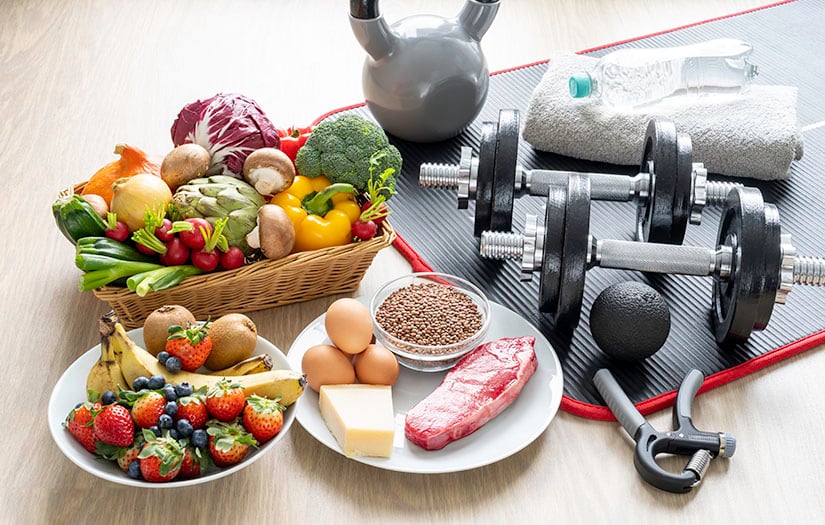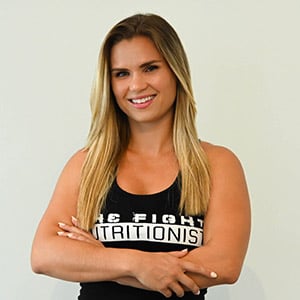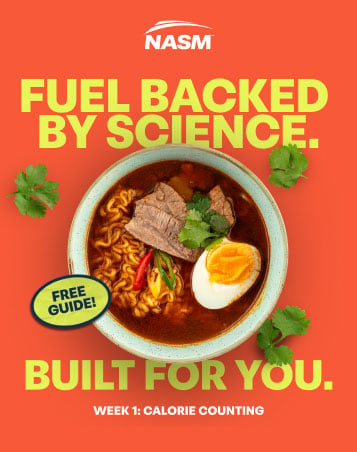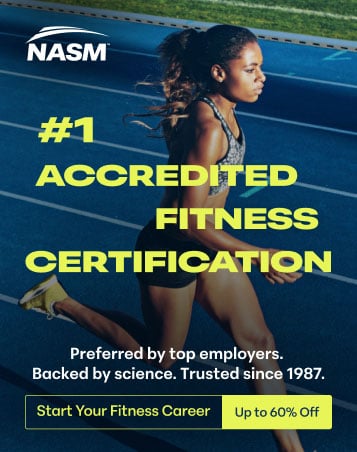Ever wonder about the various fields you could work in if you were to pursue a nutrition degree or certification? The extent of your options is much larger than you imagined. You could apply to work in hospitals or home care settings, work within the community or education system, become a wellness coach at gyms or businesses, and even become a food service manager. But one field that has started to gain much attention over the last decade is sports nutrition.
What makes sports nutrition different than other fields of nutrition? Well, sports nutrition is the study and practice of nutrition and diet with regards to improving anyone's athletic performance. The specific focus on enhancing performance through diet is what separates sports nutrition from other fields.
However, diet is only one small component that makes up the umbrella of sports nutrition. Having a thorough understanding of human physiology and metabolism, sports science, exercise physiology, sports psychology, supplements, and a basic understanding of sports themselves is vital to becoming a successful sports nutritionist.
Sports Nutrition is such an important facet of performance that NASM made a course on the subject. Check out the Sports Nutrition Coach course page here.
The Keys to Fueling Athletes
Combining your understanding of metabolism, energy systems, and diet is going to be the first step in creating programs that can enhance someone's athletic performance. Starting with the basics, let's review general recommendations and uses for carbohydrates, proteins, and fats.
Carbohydrates are the body's preferred fuel source for energy, especially red blood cells and the brain. Regarding metabolic pathways, carbohydrates are the quickest to break down and convert to ATP (Hence why they are the preferred energy source). General recommendations for carbohydrates are broken down into two categories: endurance and strength.
Training for endurance athletes is often very high volume and high intensity, and this often requires higher caloric and carbohydrate needs. It is recommended that endurance-based athletes consume 7-13g/kg/day of carbohydrates. While strength athletes also engage in intense exercise, their volume is significantly less than that of an endurance athlete. Therefore, carbohydrate recommendations are between 5-8g/kg/day for strength-based athletes.
Protein is considered the king of macronutrients in the sports nutrition world. Why? Because it is ESSENTIAL for muscle recovery. While this macronutrient doesn't deliver high energy output, meaning the body doesn't prefer to use it as an energy substrate, it is vital for building and repairing muscle tissues and maintaining the immune system. Protein recommendations for endurance athletes are between 1.5-2g/kg/day, while strength athletes have slightly higher needs of 1.7-2.2g/kg/day.
Fats are needed to deliver essential vitamins and nutrients, fight inflammation, and support healthy hormone function. Of all the macronutrients, fat recommendations are very similar between endurance and strength-based athletes (~1.5-2g/kg/day). Fat recommendations may be slightly higher for endurance-based athletes if they have very high caloric demands.
The fundamentals of general recommendations are not what makes sports nutrition unique… The utilization of these different macronutrients at specific times is one of the biggest hallmarks of sports nutrition. In the field, we call this nutrient timing. Nutrient timing is delivering specific nutrients during specific windows to significantly enhance athletic performance and promote a quick recovery.
Some basic strategic fueling guidelines are as follows:
• 30-60 minutes before exercise consume at least 30-50g carbohydrates + 5-10g protein
• Endurance-based athletes should consume ~1g/kg of high glycemic carbohydrates 30-60 minutes before exercise and competition.
• If exercise exceeds 90 minutes, consume about 30-60g of simple carbohydrates in a carbohydrate/electrolyte solution every 10-15 minutes throughout the exercise bout.
• Post-exercise consumes ~1g/kg of carbohydrates + 0.5g/kg of protein within 30 minutes - 2 hours to maximize recovery.
What About Hydration?
Yes, hydration is also another key component to sports nutrition since you will be dealing with highly active individuals. And what happens when we are active? We sweat! Losing just 2% of your body weight in fluids can lead to a significant decrease in aerobic performance. Therefore, ensuring adequate fluid consumption for athletes and active individuals is very important.
If exercise is 60 minutes are less, water alone will be an adequate hydrator. Once exercise begins to exceed 60 minutes or is taking place in a very hot/humid environment, the addition of electrolytes will be needed to replace those lost in sweat. Electrolytes are responsible for maintaining fluid balance and are essential for normal muscle contractions. Losing electrolytes in excess is what leads to early fatigue and cramping. Therefore, consuming electrolyte beverages during exercise for greater than one hour can enhance performance.
Since enhancement in performance is the name of the game in sports nutrition, being very well versed in the field of supplements is crucial. This is one of the most widely asked topics, so understanding which supplements have merit vs which do not is key to providing your clients with helpful information.
First, supplements should not be recommended unless they pass these 5 cardinal rules:
• The supplement lists every individual ingredient.
• **Warning** Beware of the word "proprietary blend".
• The supplement is tested for banned substances.
• Look for these labels: "NSF Certified Sport", "BSCG", and "Informed Choice".
• The supplement uses branded ingredients/raw materials.
• Dosages are based on scientific research.
• The supplement meets cGMP manufacturing standards and contains a banned substance label.
If you're looking for an easy place to start, here is a list of supplements that have strong evidence in the use of their support:
• B-alanine
• Caffeine
• Creatine -
• Sodium Bicarbonate
• Electrolytes
• Energy Drinks & Pre-workouts
• Some supplements that have little evidence to support their use are:
• Arginine
• Carnitine
• Glutamine
• MCT
• Theanine
So, ultimately what does your day-to-day look like if you were a sports nutrition coach? The obvious duties of a sports nutrition coach will commonly take place in performance-based locations such as gyms and training centers.
You will spend most of the time monitoring your client's training and educating them on how to fuel appropriately during those sessions. You'll spend many hours educating them on the importance of nutrient timing and the use of supplements to maximize both their performance and recovery. Additionally, you will also likely be performing body composition analyses.
Every Body is Different
Understanding body composition as it relates to various athletics is a vital component of the field. Many times, having leaner compositions is advantageous in endurance-based sports, and having higher body fat and more muscle is advantageous in power sports. An extensive knowledge base in ideal body composition ranges for various sports will help guide your clients to appropriate, healthy body composition.
But what are the not-so-obvious duties? While it's important to stay within your scope, having training in counseling, understanding psychology, and even being familiar with medical conditions or injuries is important to becoming a sports nutritionist. Disordered eating patterns, food phobias, and distorted body images are very common in the world of sports — understanding how to counsel clients with these behaviors is pivotal to their performance. With active individuals comes injuries — knowing how to aid and enhance healing processes is important.
Sports nutrition is far more encompassing than understanding the basics of nutrition. It is using the science of food in combination with physiology to manipulate certain systems within our bodies to achieve the desired performance result. While the umbrella of sports nutrition might seem small, you will quickly learn that many other fields are involved in its making. Working within athletics is very challenging, and understanding the culture, the psychology, and even clinical aspects of sports and fitness is required to be successful in the field.
For more information on this topic, check out our NASM-CNC page.

















